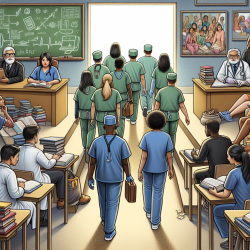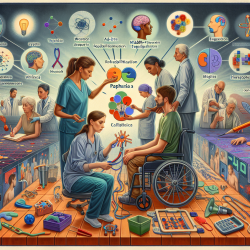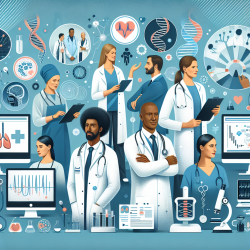Introduction
In the ever-evolving landscape of medical education, there is a growing need to prepare future physicians to address the complex healthcare needs of diverse societies. Traditional pedagogical methods often fall short in equipping students with the necessary skills to tackle these challenges. However, a promising approach lies in infusing service-learning into medical curricula, as highlighted in the research article "An Overview of Infusing Service-Learning in Medical Education" by Stewart and Wubbena (2014). This blog explores how practitioners can enhance their skills by implementing the outcomes of this research or by delving deeper into the topic.
The Four-Stage Service-Learning Framework
The research presents a four-stage framework for integrating service-learning into medical education:
- Planning and Preparation: This stage involves differentiating service-learning from community service, selecting appropriate curriculum integration points, building university-community partnerships, and establishing necessary structures and recognition for faculty.
- Action: In this stage, the service activity is matched to learning goals, and the program design is tailored to ensure meaningful student participation and community impact.
- Reflection and Demonstration: Reflection serves as the bridge between service and learning, encouraging critical thinking and contextual understanding. Best practices include continuous reflection, goal setting, and transparent evaluations.
- Assessment and Celebration: This final stage involves both qualitative and quantitative assessments to measure student outcomes and community impacts, culminating in a celebration of achievements and learning.
Benefits of Service-Learning in Medical Education
Service-learning offers myriad benefits, including enhanced academic learning, professional development, personal growth, and increased social responsibility. Students gain practical skills and a deeper understanding of public health, while developing empathy and leadership abilities. Moreover, service-learning fosters strong campus-community relationships, benefiting both students and the communities they serve.
Encouraging Further Research and Implementation
For practitioners interested in enhancing their skills and contributing to the advancement of medical education, further research and implementation of service-learning are crucial. By actively engaging in the Scholarship of Teaching and Learning (SoTL), educators can share effective practices and outcomes, fostering continuous improvement in service-learning programs.
To read the original research paper, please follow this link: An overview of infusing service-learning in medical education.










